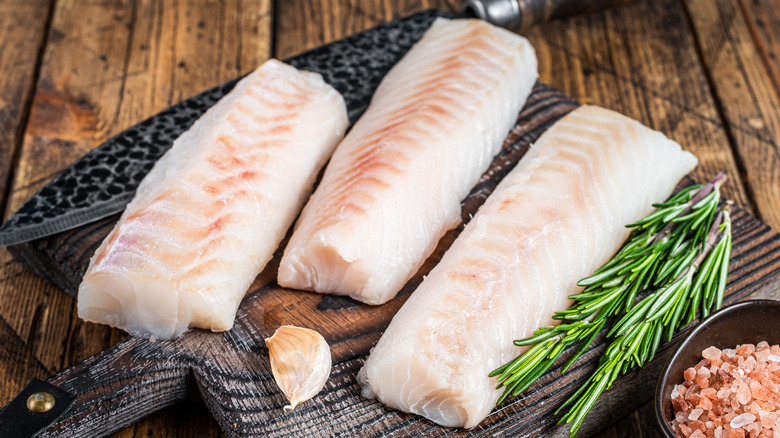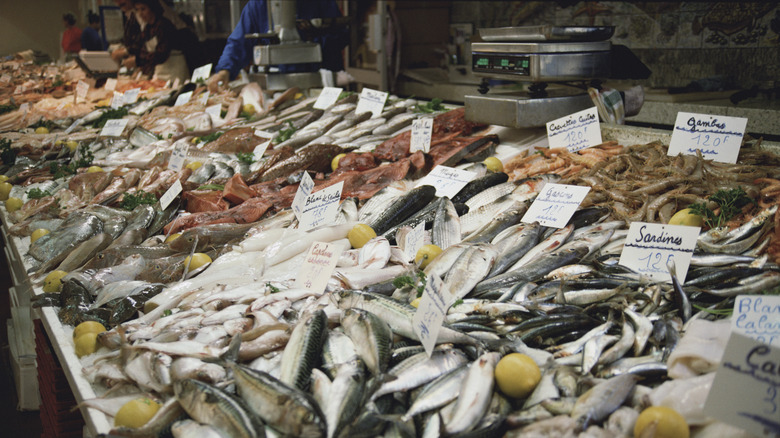The Simple Reason You Won't Find 'Organic' Fish At The Grocery Store
The word organic has been famously linked to an earthy-consumer stereotype, consisting of folks with a diet primarily of quinoa and trail mix. But today, it looks like that outdated reputation has largely faded from the public mindset. More foodies than ever are going organic. Folks are reaching for organic nuts, organic spinach, organic beef, and organic ... fish? Not exactly.
According to USDA regulations, in order for a food to be certified organic, it must "be produced using agricultural production practices that foster resource cycling, promote ecological balance, maintain and improve soil and water quality, minimize the use of synthetic materials, and conserve biodiversity." That means no genetic engineering, no artificial fertilizers, no growth hormones, and no antibiotics. In short, the requirements are pretty rigorous, even including a soil inspection for growers, but conscientious consumers would probably argue that the extra effort is worth it. In addition to being healthier, organic agricultural practices also promote animal welfare and environmental conservation.
But, what about when it comes to aquaculture? When Chevalier-honored chef Thomas Keller buys whole fish, he looks for pink gills and unclouded eyes. But, why doesn't he look for a label that reads organic? Spoiler alert: They don't exist in the seafood aisle. Here's the simple reason why you won't find organic fish at the grocery store.
Organic is a USDA thing, and they don't handle aquaculture
Simply put, you won't find organic fish because the certified organic label can only be administered by the USDA, and the USDA doesn't regulate America's aquaculture industry. The NOAA does. According to registered dietician Jaclyn London via Delish, instead of an "organic" label, you might see grocery store seafood packaged with labels like farm-raised or wild-caught, indicating how the fish was raised.
Judging by the USDA guidelines for what constitutes organic food, wild-caught fish is closer to "organic" than farm-raised fish. Since many natural nutrients are stripped during food handling and manufacturing, organic foods tend to be more nutritious than non-organic food. In the same way that organic food's minimal handling keeps its nutrients intact, wild-caught fish are often more nutritious than farm-raised fish. Plus, wild fish populations perpetuate and restore natural aquatic habitats.
Still, farm-raised fish aren't to be dismissed. Since they're raised in a closed environment, they produce consistent, disease-free meat. According to Alaska-based fisherman Tyler Fick, it's this variable that prevents fish from being certified organic. "Wild fish have been excluded from the organic label because we can't say for sure what they eat out in the ocean," Fick explained, via Martha Stewart. But, for as close to organic fish as you can get, Fick recommends buying a whole fish directly from a reputable fishmonger.

